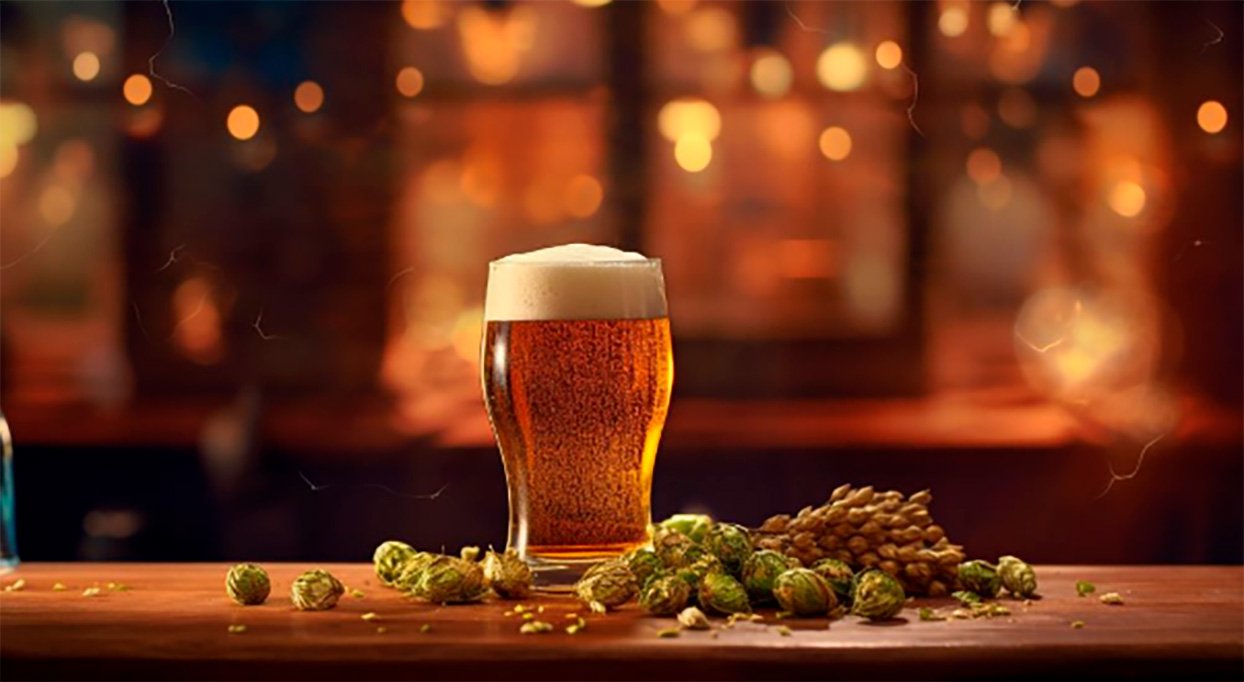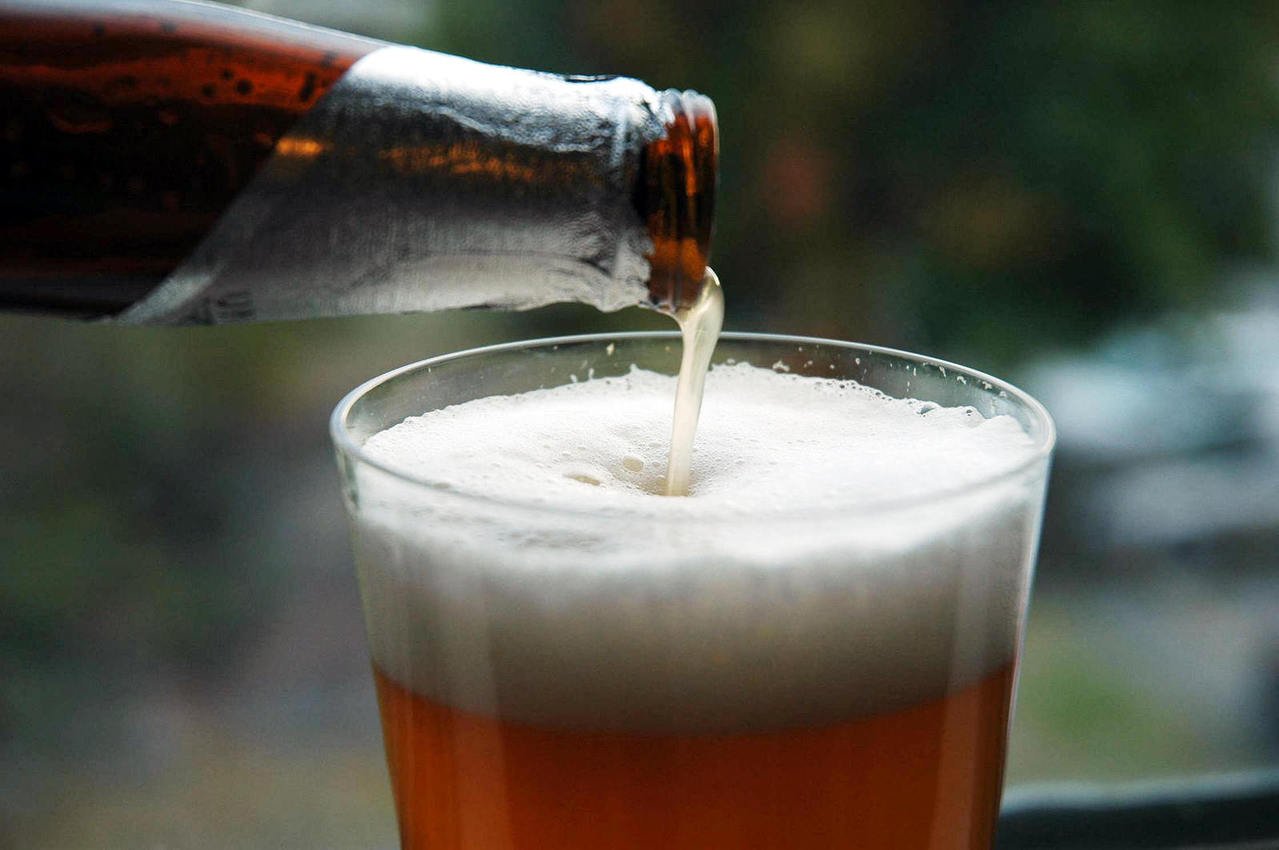From Bud to Brew: The Rise of Cannabis-Infused Beers
/Get ready to embark on a journey into the world of cannabis-infused beverages
Are you curious about the latest trend in the brewery industry? Get ready to embark on a journey into the world of cannabis-infused beverages.
This article will explore the rise of THC-infused drinks, from fortified chocolate milk to Vitamin Water.
We'll delve into the historical roots, modern techniques, and legal hurdles surrounding these innovative beverages. Get ready to daze and infuse with THC in the brewery!
The Rise of Cannabis-Infused Beverages in the Brewery Industry
The brewery industry is experiencing a rise in cannabis-infused beverages. Craft breweries are embracing the trend and exploring the potential of combining THC with their brews.
This new wave of infused beverages aims to provide a unique experience for consumers who desire liberation and experimentation.
By infusing cannabis into non-alcoholic beverages, breweries can navigate federal regulations prohibiting the combination of THC and alcohol.
With advancements in emulsification technology, THC can be effectively incorporated into beverages, providing a faster and more predictable onset of effects.
Despite legal hurdles and regulations, the changing landscape of the brewery industry is opening up exciting possibilities for the future of cannabis-infused beverages. Exploring the Historical Roots of THC in Beer In the past, there have been experiments attempting to combine hops and cannabis to create a unique beer experience.
Ed Rosenthal, in his guidebook 'Marijuana Beer,' provided a method for infusing homebrew with cannabis. His approach involved adding pot leaves and trimmings after fermentation.
The process has evolved today, with craft breweries using high-proof spirits to extract THC and dose the beer. However, federal regulations prohibit the mixing of THC and alcohol. Despite these legal hurdles, the landscape is changing rapidly, with technologies for infused beverages developing and entrepreneurs launching brands.
Modern Techniques for Infusing THC Into Craft Brews
Craft brewers are embracing modern techniques to incorporate THC into their beers, pushing the boundaries of flavor and experience.
By using high-proof spirits to extract THC and dose the beer, they can create unique and potent beverages that offer a new level of intoxication.
Emulsification technology has also played a role in this process, allowing brewers to create stable emulsions that mix THC and beer seamlessly.
The future of THC-infused craft brews looks promising, with rapidly developing technologies and a growing interest in this emerging market. For now, though, for legal reasons which will be explored later, these beers need to be alcohol-free.
Emulsification: The Key to Stable THC Infusions in Beverages
Emulsification technology allows for the creation of stable THC infusions in beverages, ensuring that the psychoactive compound is evenly distributed and providing a consistent and predictable onset of effects. Emulsions are created using surfactants, which are substances that allow previously immiscible liquids to mix and stay stable.
In the case of THC-infused beverages, nano-emulsification is utilized to create miniscule surfactant bubbles filled with THC oil. These emulsions have a faster and more predictable onset of effects than other infusion methods.
This technology has opened up new possibilities in the beverage industry, allowing for the development of cannabis-infused functional beverages that are changing the landscape.
Navigating Legal Hurdles: THC and Alcohol Regulations
To navigate the legal hurdles surrounding the infusion of THC and alcohol, it is important to understand that federal regulations prohibit mixing these substances. This leaves craft breweries with limited options, as they can only use THC and CBD to create alcohol-free beverages.
Cannabis remains illegal at the federal level, and products containing both alcohol and THC are also illegal. As a result, craft breweries cannot use THC-infused alcohol in their beverages. However, they are permitted to use THC and CBD to make alcohol-free beverages, allowing them to explore the potential of cannabis-infused drinks.
Craft breweries must adhere to these regulations to avoid legal consequences. While federal prohibition presents challenges, the changing landscape of the cannabis industry and the development of technologies for infused beverages offer potential opportunities for innovation and growth in the brewery industry.
The Exciting Potential of Infused Beverages in the Changing Landscape
Functional beverage categories like fortified chocolate milk and VitaminWater have already gained popularity, but now, the introduction of cannabis-infused beverages is taking things to a whole new level.
Companies like CERIA Brewing aim to bring cannabis to the masses in a socially acceptable format by focusing on non-alcoholic beverages. Bale Breaker has even launched Sungaze Cannabis Company to destigmatize THC consumption. Even brands traditionally from the CBD industry are getting in on the act: Crescent Canna recently launched a line of legal Delta-9 cannabis beverages.
Though federal regulations prevent craft breweries from mixing THC and alcohol, there are still ways to infuse cannabis in beer. Food scientists have developed stable emulsions using surfactants, enabling faster and more predictable onset of effects. With technologies rapidly developing, the possibilities for infused beverages are endless.
The Impact of THC-Infused Functional Beverages on the Industry
Emulsification techniques are revolutionizing the functional beverage industry by introducing THC-infused products. These innovative methods allow for the creation of stable emulsions, where previously immiscible liquids, like THC and water, can now mix and stay stable. This means that THC-infused functional beverages can be produced with faster and more predictable onset of effects.
Using surfactants in these emulsions creates minuscule bubbles filled with oil, ensuring that the THC is evenly distributed throughout the beverage. This technology is rapidly developing, and it is changing the landscape of the beverage industry.
Craft brewers are excited about its new challenges and opportunities, and businesspeople are launching brands and developing supply chains.





